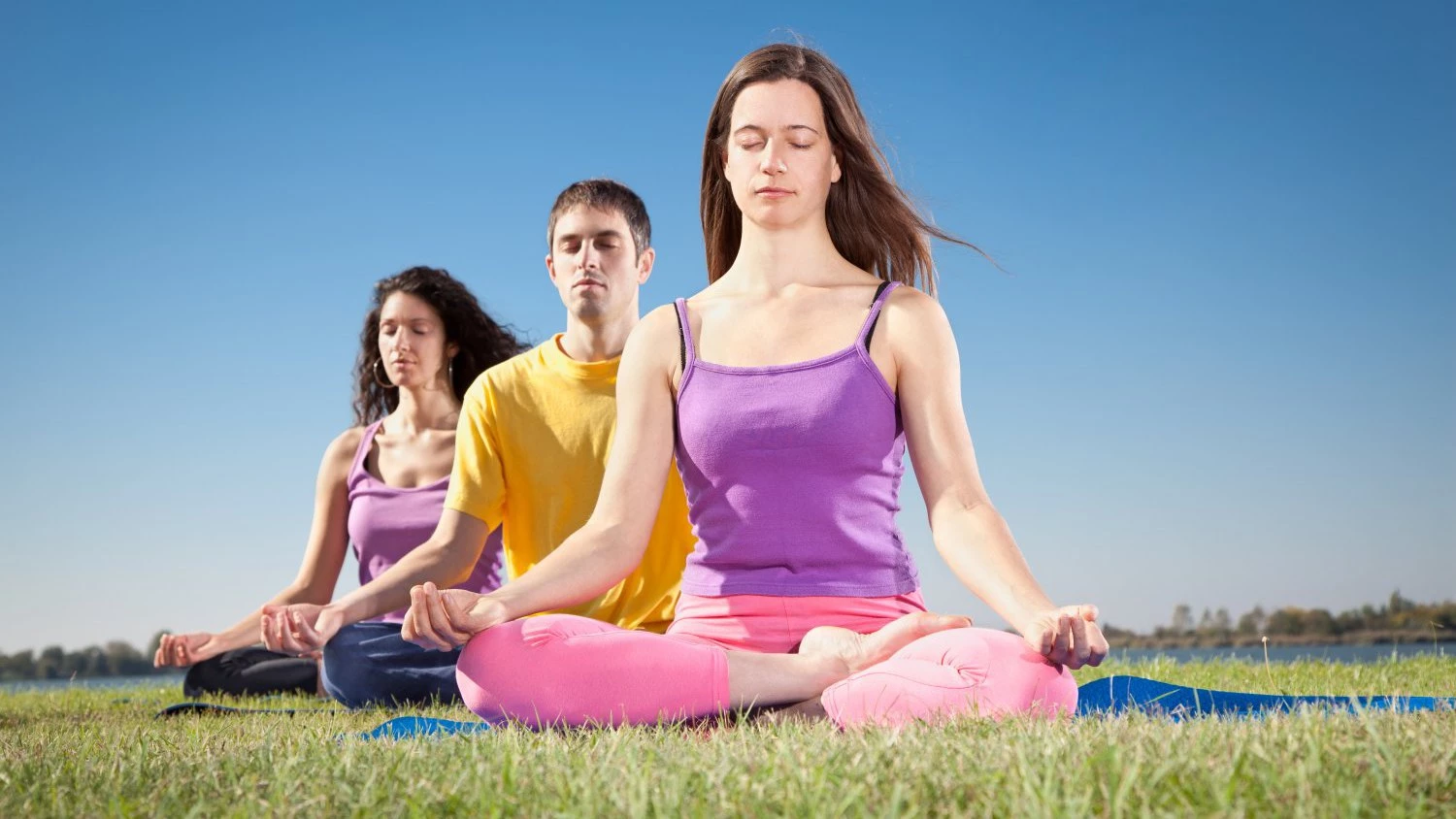Does Yoga Make You a Nicer Person? Yogis Say “Yes”

At a workshop on yoga and skills for successful relationships this past weekend at the Montreal International Symposium for Therapeutic Yoga (MISTY), I posed a question, “Does yoga make you a nicer person?” Attendees broke into spirited discussion, unanimously agreeing that they were more tolerant, compassionate, accepting and agreeable (among other things) since taking up a regular yoga practice.
Why would yoga make us nicer? Perhaps it is as simple as the fact that on the mat, we are briefly liberated from the intensity of everyday life.
Perhaps it is because the increased flexibility that we feel in our bodies and minds is translated into greater cognitive flexibility, and an ability to adapt to the demands that partners, spouses, children, and coworkers place upon us.
Maybe the long, slow, relaxed breathing that floods the brain with dopamine and activates the parasympathetic nervous system, provides an oasis of calm in an otherwise stressful life.
Or perhaps yoga brings out our playful side, allowing us experience relationships from a place of joy and gratitude instead of anger and frustration. It may be none or all of the above… and more.
Evidence-based Proof of “Niceness”
A recent study published in the Journal of Holistic Nursing, provides some insight into why people feel that yoga helps to make them “nice.” Researchers at the University of Maryland in Baltimore surveyed over 1,000 Iyengar yoga students across the United States using an on-line questionnaire. Respondents were primarily female (86%), white (91.8%), college educated (95.9%), and married or living with a partner (66.1%).
Seven hundred (67%) of the 1,045 participants either agreed or strongly agreed that yoga improved their relationships. Of that sample, 171 participants posted comments regarding how yoga benefitted their relationships with others.
When the authors analyzed the content of these comments four common themes emerged:
-
Personal transformation
-
Increased social interaction
-
Improved coping mechanisms to deal with relationship crises and losses, and
-
Spiritual transcendence and connection.
Personal transformation related to a number of factors including the ability to be present and self-aware, to live in the moment, and to be less “cranky,” reactive, and judgmental. Some felt that yoga allowed them to be calm, strong, and in less pain, which helped to facilitate better communication.
Regular yoga practice served a social function for many respondents who felt that feeling like they belonged to a community as well as decreased social isolation helped them to cope with difficult life circumstances including relationship problems.
Survey respondents also indicated that their yoga practice enabled them to weather difficult relationship circumstances such as abuse, divorce, and death. One practitioner stated, “Yoga seems to remove the chaos from relationships so that you can better enjoy people.” Another explained, “Yoga helps me get over anger and hurt, which helps maintain relationships.”
They also believed that yoga resulted a change in attitude and perspective that allowed them to be more “patient, kind, mindful, and self-aware.”
Spiritual transcendence and connection also emerged as a common theme. Yoga students related feelings of being “a part of something bigger and deeper that transcended individual differences,” as well as a greater sense of purpose and unity with others.
Anecdotal Affirmation
Participants at the MISTY workshop also identified several themes worth noting. A number believed that their perfectionist attitudes regarding self and other led to unrealistic expectations that threatened their relationships. Repeated reminders that yoga, like life, is a practice, helped them to be more accepting of the ups and downs of relationships instead of being derailed by conflict.
Others reported that yoga cultivated a sense of acceptance and surrender that enabled them to realize that strategies such as attacking and defending, as well as inflexibility and the need to be right undermined their interactions with others. This acceptance and surrender were cultivated through a combination of the messages that they received from their instructors regarding equanimity, compassion and loving kindness, as well as their own explorations of how rigidity in their bodies often resulted led to pain and suffering.
One thing that is clear is that practitioners believe that the practices and principles of yoga help them to be better people. Strength, peace and resilience of mind, body and spirit allow us to interact with others from a place that is grounded in compassion rather than instability and reactivity. It is definitely something that we should all explore on and off the mat.
 B Grace Bullock, PhD, E-RYT 500, is the Founding Director of the International Science & Education Alliance, a firm that provides strategic planning, research consultation and assessment design to support the empirically rigorous evaluation and sustainable implementation of programs in education, leadership, health and human services. Grace is an intervention scientist, psychologist, yoga educator and author who has worked extensively in integrated behavioral health settings. Her research, clinical practice, teaching and writing emphasize the incorporation of empirically supported psychotherapy with yoga therapy and mindfulness practices to relieve the symptoms of stress, trauma, anxiety, depression and other psychological illnesses, and to promote healthy relationships. She is Faculty at the Integrated Health Yoga Therapy therapist training program, and Professor of Yoga & Neuroscience at the Taksha University School of Integrative Medicine. Grace is the former Editor in Chief of the International Journal of Yoga Therapy and recipient of a Francisco J. Varela Research Award from the Mind & Life Institute. For more information contact Grace at bgracebullock@me.com or see http://isaeaorg.wix.com/isaea and http://www.mind-bodytherapy.com.
B Grace Bullock, PhD, E-RYT 500, is the Founding Director of the International Science & Education Alliance, a firm that provides strategic planning, research consultation and assessment design to support the empirically rigorous evaluation and sustainable implementation of programs in education, leadership, health and human services. Grace is an intervention scientist, psychologist, yoga educator and author who has worked extensively in integrated behavioral health settings. Her research, clinical practice, teaching and writing emphasize the incorporation of empirically supported psychotherapy with yoga therapy and mindfulness practices to relieve the symptoms of stress, trauma, anxiety, depression and other psychological illnesses, and to promote healthy relationships. She is Faculty at the Integrated Health Yoga Therapy therapist training program, and Professor of Yoga & Neuroscience at the Taksha University School of Integrative Medicine. Grace is the former Editor in Chief of the International Journal of Yoga Therapy and recipient of a Francisco J. Varela Research Award from the Mind & Life Institute. For more information contact Grace at bgracebullock@me.com or see http://isaeaorg.wix.com/isaea and http://www.mind-bodytherapy.com.



